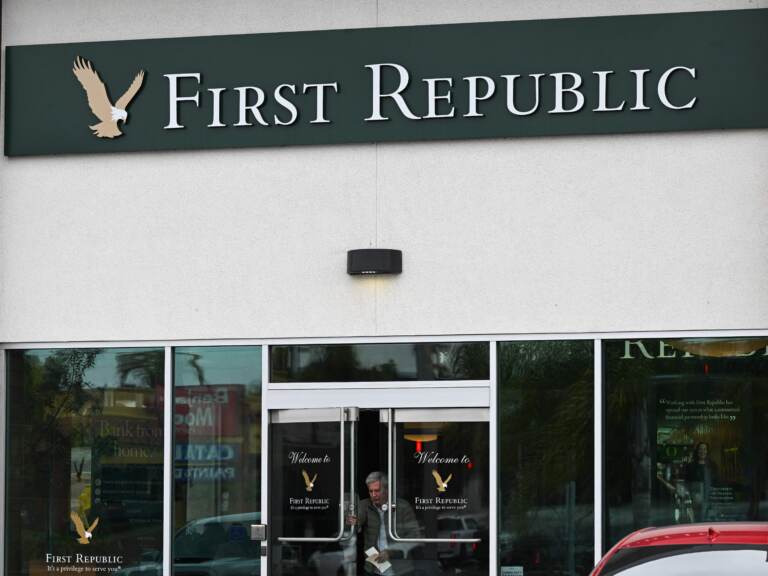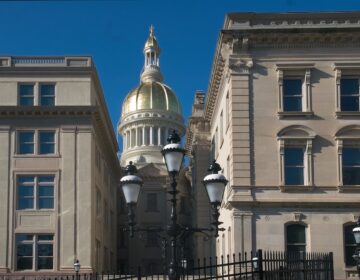First Republic Bank becomes the latest bank to be rescued, this time by its rivals

A customer exits a First Republic Bank branch in Manhattan Beach, Calif., on March 13, 2023. The midsized lender was rescued by a group of top banks after suffering an exodus of depositors following the collapse of two U.S. banks. (Patrick T. Fallon/AFP via Getty Images)
Some of the biggest banks in the U.S. are stepping in to save First Republic Bank.
A group of 11 lenders including J.P. Morgan, Bank of America, Citigroup, and Wells Fargo said they will deposit $30 billion in First Republic Bank in an effort to prop up the beleaguered midsized lender.
The rescue comes after confidence in smaller lenders cratered following the collapse of Silicon Valley Bank and Signature Bank in what has been an extraordinary week for U.S. lenders.
“This action by America’s largest banks reflects their confidence in First Republic and in banks of all sizes, and it demonstrates their overall commitment to helping banks serve their customers and communities,” the lenders said in their statement.
“Regional, midsize and small banks are critical to the health and functioning of our financial system,” the statement added.
California-based First Republic has experienced an exodus of depositors since the failures of those two banks, as many of its customers moved their money to larger rivals.
That happened even after the lender said it had lined up $70 billion in new financing from both the Federal Reserve and the world’s largest bank, J.P. Morgan Chase. First Republic also noted it was eligible to seek additional funding from the Fed if there were heightened demand for withdrawals.
The bank has also said its balance sheet is sound and that depositors are safe, but investors have still worried they were vulnerable to a similar run on deposits as Silicon Valley Bank.
First Republic had a lot of unsecured deposits
Like SVB, First Republic was founded in California, and it caters to wealthy individuals and businesses.
On Wednesday, Fitch Ratings and S&P Global Ratings both downgraded First Republic’s credit rating.
Explaining its decision, Fitch said the bank’s “focus on wealthy and financially sophisticated customers in select urban coastal markets in the U.S.” has led to “a high proportion of uninsured deposits.”
The agency also suggested it is likely First Republic’s customers would take their money elsewhere if the lender were to find itself under more pressure Their deposits “can be less sticky in times of crisis or severe stress,” Fitch wrote.
According to analysis by S&P Global Market Intelligence, at the end of last year, 67.7% of First Republic’s domestic deposits were uninsured by the F.D.I.C — meaning they exceeded the regulator’s $250,000 limit.
9(MDAzMzI1ODY3MDEyMzkzOTE3NjIxNDg3MQ001))




